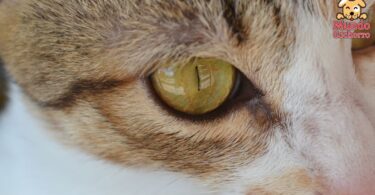Cats, despite their charm and unique personalities, can develop inappropriate behaviors that can be frustrating to owners. From scratching furniture to urinating outside the litter box, these behaviors can be challenging to address. In this post we present some effective strategies to prevent and correct inappropriate behaviors in your feline friend.
Indice
Avoidance of inappropriate behavior in cats
Provides a stimulating environment
Cats are curious and active creatures, and lack of stimulation can lead to unwanted behaviors. Make sure your cat has adequate toys and environmental enrichment, such as scratching posts, interactive toys and elevated places to explore. An enriched environment will help release your cat’s energy in a positive way.
Establish a consistent routine
Cats are creatures of habit, and any change in their daily routine can cause stress and unwanted behaviors. Maintain a consistent routine for meals, playtime and sleep times. This will provide security for your cat and reduce the likelihood of problem behaviors.
Provides multiple sandboxes
Litter box-related problems, such as urinating outside the litter box, can often be related to the cat’s dissatisfaction with the location or cleanliness of the litter box. Make sure you have at least one litter box for each cat and place them in quiet, accessible locations. Clean the boxes regularly to prevent your cat from looking for other places to relieve itself.
Uses positive reinforcement
Positive reinforcement is a powerful tool for modifying feline behavior. Reward your cat when he exhibits desired behaviors with treats, petting or praise. This reinforces the positive connection between the behavior and the reward, encouraging your cat to repeat those behaviors.
Avoid physical punishment
Physical punishment can have negative effects on your relationship with your cat, generating fear and anxiety. Instead, focus on redirecting unwanted behavior to acceptable activities and rewarding good behavior. Patience and consistency are key to correcting behavioral problems.
Consultation with a veterinarian
Sudden changes in behavior may be due to underlying health problems. If your cat begins to exhibit unusual behaviors, such as aggressiveness or changes in eating habits, it is crucial to consult a veterinarian to rule out medical problems.
Apply feline pheromones
Feline pheromones, available in the form of diffusers or sprays, can help calm cats and reduce stress that often leads to unwanted behaviors. These mimic the facial pheromones that cats use to mark their territory and feel safe.
Educated pussies
Preventing your cat from developing inappropriate behaviors requires patience, understanding and an investment of time in your cat’s well-being. By providing a stimulating environment, maintaining a consistent routine, using positive reinforcement and attending to medical needs, you can help your cat become a happy and balanced companion. Remember that every cat is unique, and finding the right strategies for your feline friend may take time and adjustments.
Image courtesy of https://pixabay.com, all rights reserved.







